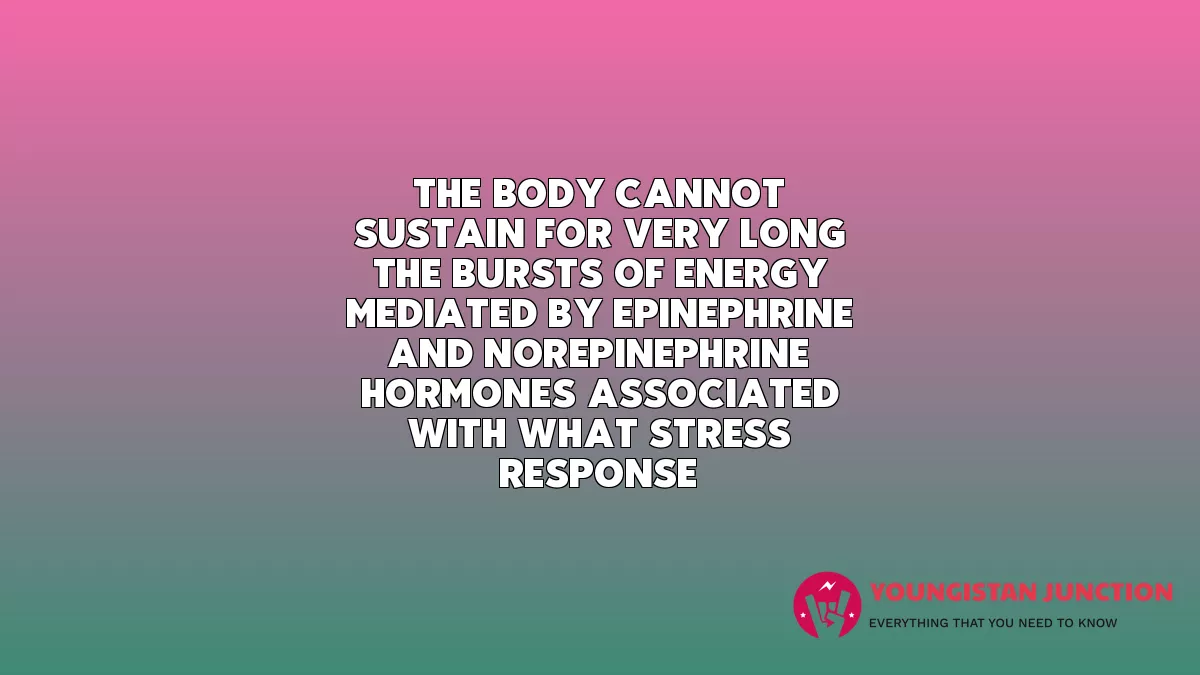The body cannot sustain for very long the bursts of energy mediated by epinephrine and norepinephrine, hormones associated with what stress response?
- Correct Answer: sink-or-swim
- do-or-die
- fainting
- fight-or-flight
Explanation: Watch this Discovery Channel animation (http://openstaxcollege. org/l/adrenaline) describing the flight-or-flight response. Long-term Stress Response Long-term stress response differs from short-term stress response. The body cannot sustain the bursts of energy mediated by epinephrine and norepinephrine for long times. Instead, other hormones come into play. In a long-term stress response, the hypothalamus triggers the release of ACTH from the anterior pituitary gland. The adrenal cortex is stimulated by ACTH to release steroid hormones called corticosteroids. Corticosteroids turn on transcription of certain genes in the nuclei of target cells. They change enzyme concentrations in the cytoplasm and affect cellular metabolism. There are two main corticosteroids: glucocorticoids such as cortisol, and mineralocorticoids such as aldosterone. These hormones target the breakdown of fat into fatty acids in the adipose tissue. The fatty acids are released into the bloodstream for other tissues to use for ATP production. The glucocorticoids primarily affect glucose metabolism by stimulating glucose synthesis. Glucocorticoids also have anti-inflammatory properties through inhibition of the immune system. For example, cortisone is used as an anti-inflammatory medication; however, it cannot be used long term as it increases susceptibility to disease due to its immune-suppressing effects. Mineralocorticoids function to regulate ion and water balance of the body. The hormone aldosterone stimulates the reabsorption of water and sodium ions in the kidney, which results in increased blood pressure and volume. Hypersecretion of glucocorticoids can cause a condition known as Cushing’s disease, characterized by a shifting of fat storage areas of the body. This can cause the accumulation of adipose tissue in the face and neck, and excessive glucose in the blood. Hyposecretion of the corticosteroids can cause Addison’s disease, which may result in bronzing of the skin, hypoglycemia, and low electrolyte levels in the blood.
More Random Questions
Ans: Tala Yantra
Ans: Lahaul Spiti
Ans: Apple
Ans: six
Ans: 23 pairs
Ans: Speed limit
Ans: New Delhi
Ans: PhonePe
Ans: final position
Ans: Poland
Ans: Jat-Jatin
Ans: range
Ans: Argentina
Ans: in deserts
Ans: 20 meters

